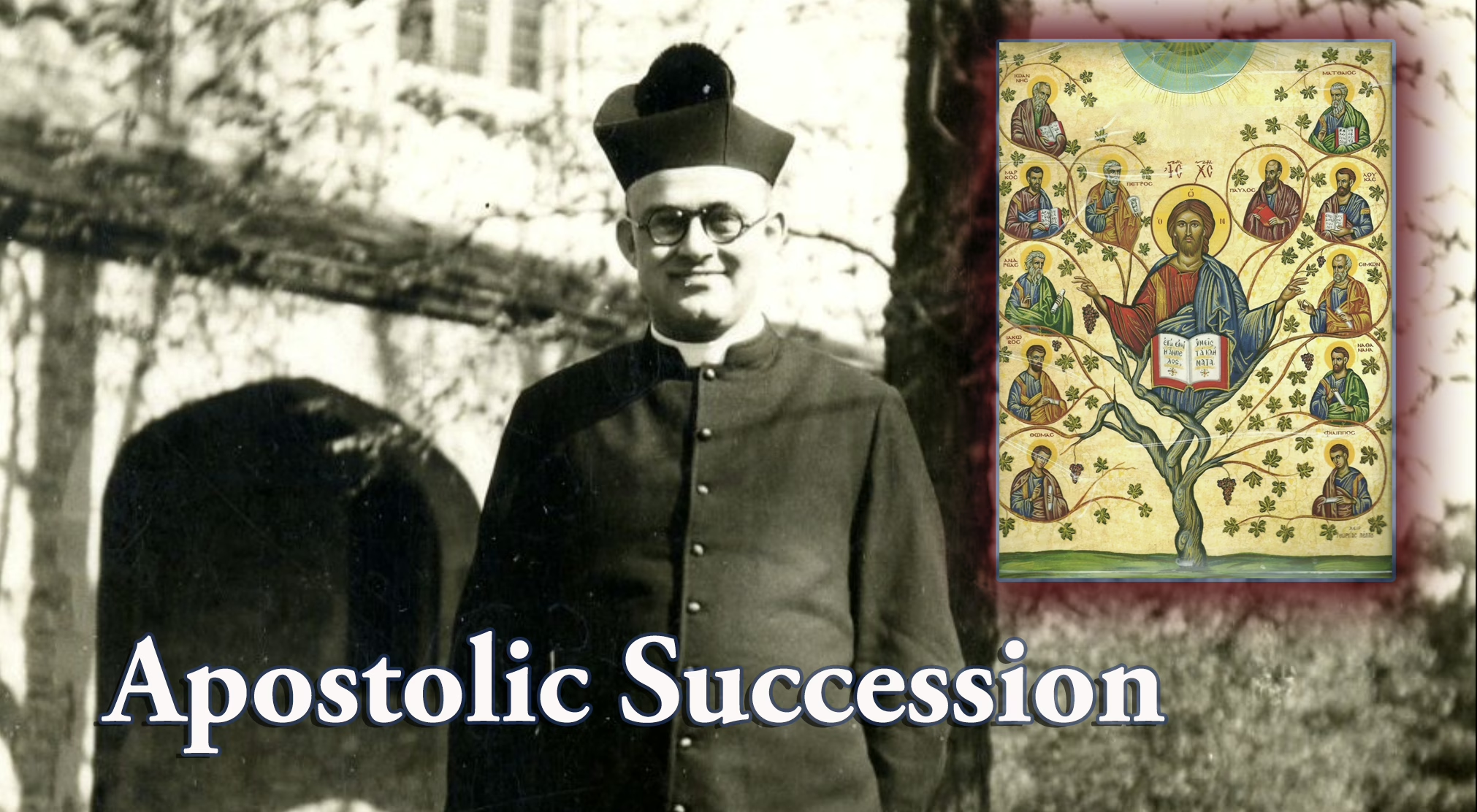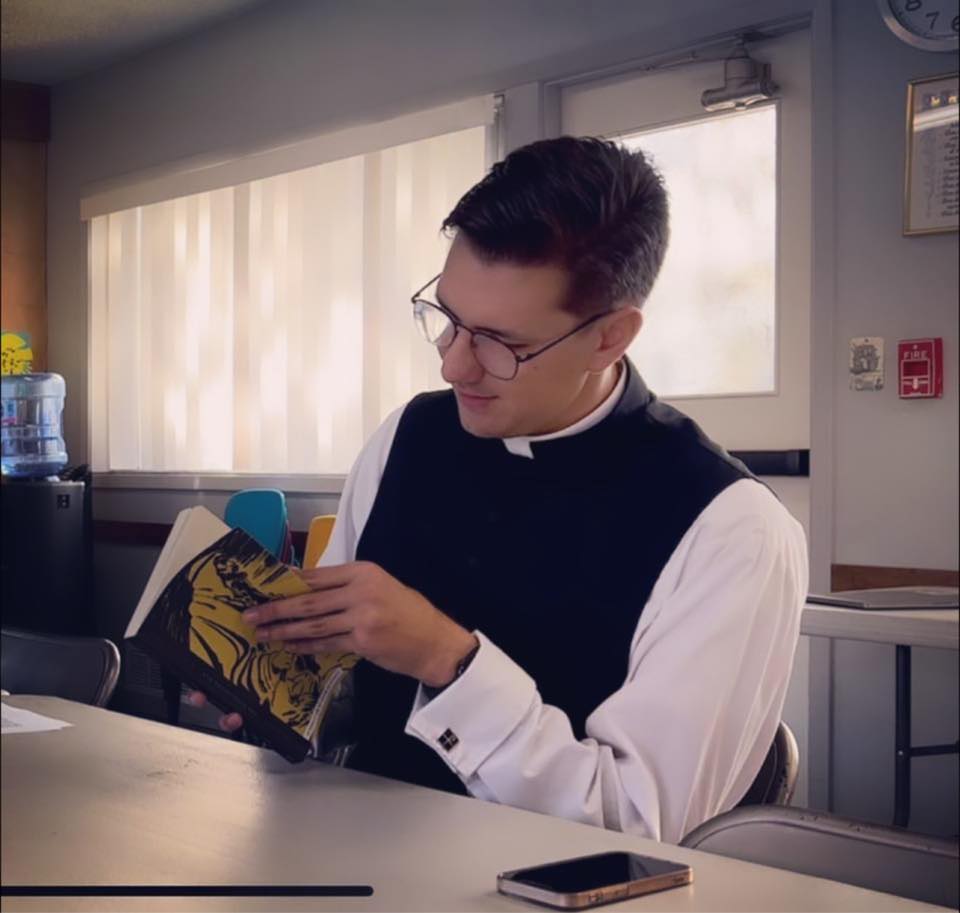Felix L. Cirlot (1901–1956) was an Anglican theologian and priest in the Episcopal Church, known for his scholarly defense of apostolic succession and critiques of ecumenical compromise. He taught at Nashotah House in the 1930s and served in several prominent Episcopal parishes, leaving behind a body of work that remains vital for understanding Anglican ecclesiology.
I’ll be blogging through his now out-of-print and hard to find book, “Apostolic Succession: Is It True?” My goal is to eventually get this into a video series on my Youtube Channel.
What is Apostolic Succession?
Apostolic Succession is the doctrine that Christ himself instituted the Apostolic ministry to carry forward His own divine mission in the world and that he entrusted the Apostles with spiritual authority and the gifts of the Holy Spirit to govern, teach, and sanctify the Church. This Apostolic authority was handed down through their teaching (Scripture) and the laying on of hands (Ordination) in a continuous succession, preserving the ministry of Christ through the threefold order of bishops (from episkopos, meaning overseer), priests (from presbyteros, meaning elder), and deacons (from diakonos, meaning servant). Among these, it is the bishop alone who possesses the fullness of the apostolic office and the authority to ordain.
In the preface, Cirlot writes:
“This book has been written to uphold the divine authority of Catholic Bishops, just as my preceding book was written to uphold the thesis that Anglican Bishops are Catholic Bishops. But the divine authority of Bishops is mediate and delegated, and therefore never unconditional or absolute. If those pledged to uphold the present doctrine and discipline of the Anglican Communion fail to keep that pledge, I have no doubt that others can be found who will uphold it, and that enough of our present Bishops can be found to ordain shepherds in all places where Anglicans are now organized who wish to continue faithful to what Anglicanism is officially at present.” (Preface, xii)
Do Anglicans believe in Apostolic Succession?
The Preface to the Ordinal (1662 Book of Common Prayer), which is foundational across the Anglican Communion, clearly affirms Apostolic Succession:
“It is evident unto all men, diligently reading holy Scripture and ancient Authors, that from the Apostles’ time there have been these Orders of Ministers in Christ’s Church—Bishops, Priests, and Deacons.”
After the Reformation, the Anglicans (Church of England) retained the episcopacy and continued valid ordinations through bishops consecrated in the historic, apostolic line. Matthew Parker, consecrated Archbishop of Canterbury in 1559, was ordained by four bishops (Barlow, Scory, Coverdale, and Hodgkins) who themselves had valid orders going back before the English Reformation and historically consecrated by Bishops who used the Roman rite. This ensured unbroken succession of our Catholic orders in intention, form, and matter. As the Reformation was formalized in the Elizabethan Settlement (1559), the church reaffirmed the threefold ministry, and the 1662 Prayer Book standardized it for Anglican worship and polity.



Leave a Reply